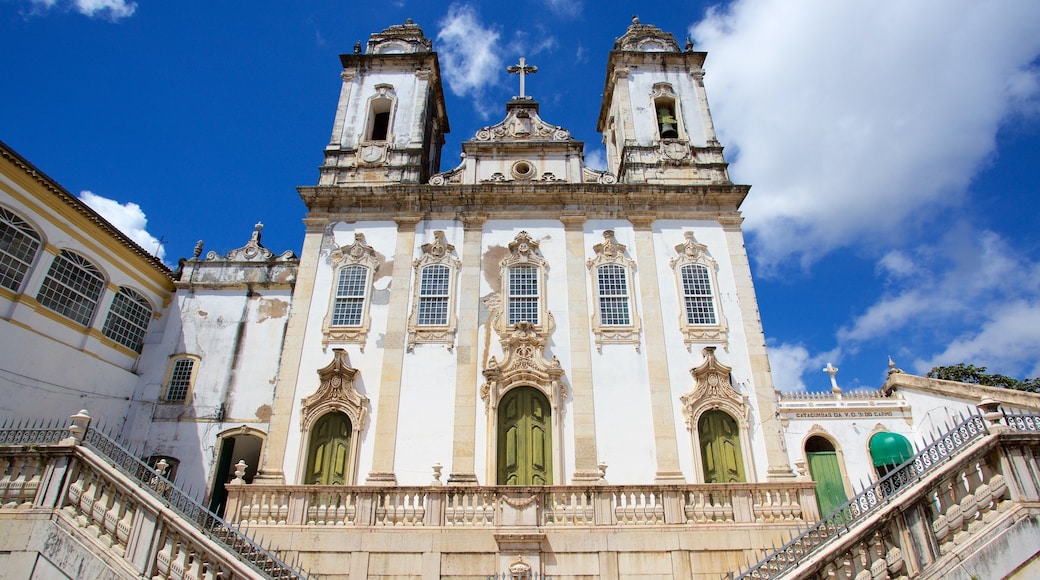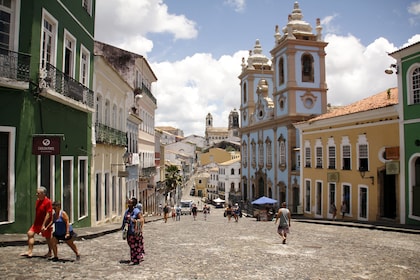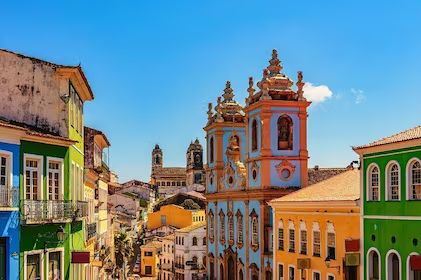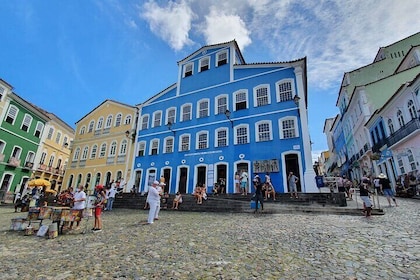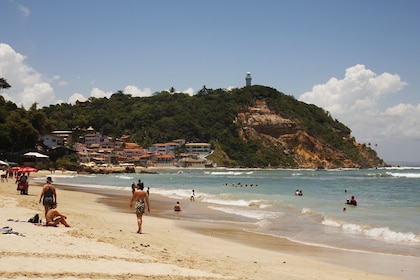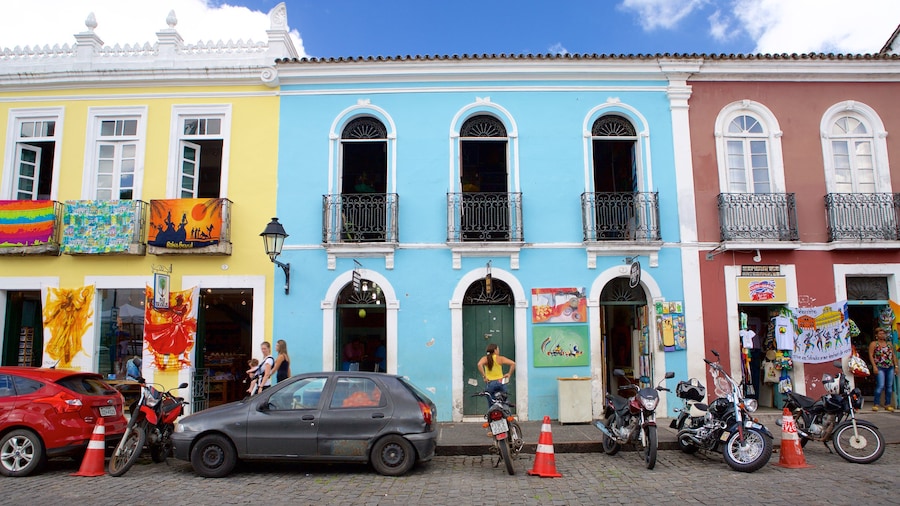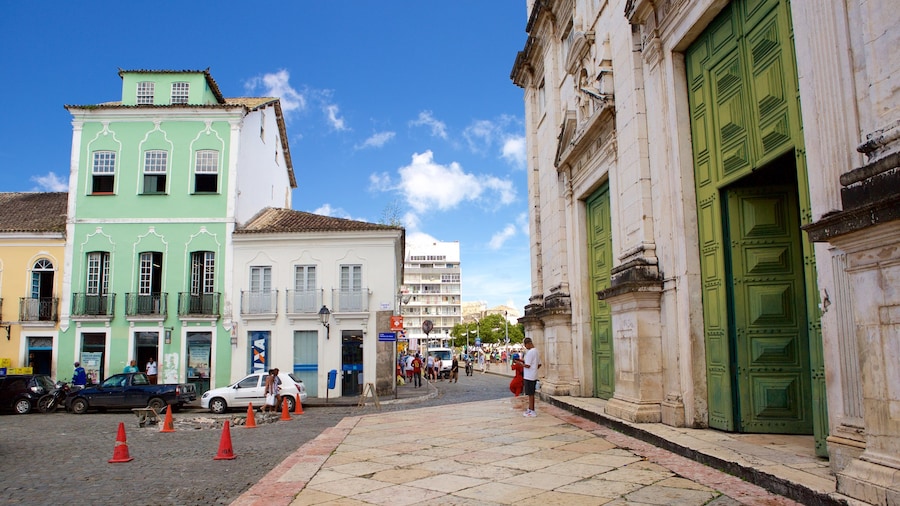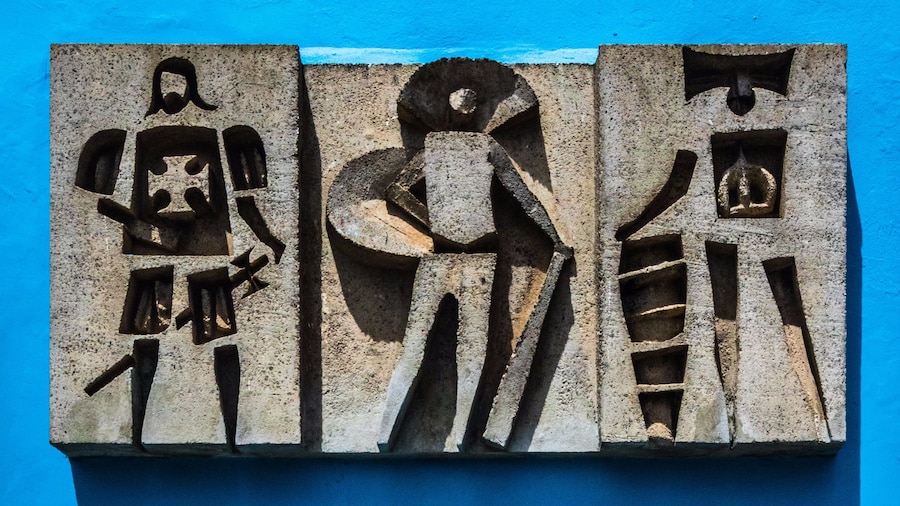With gold leaf artwork and decorative azulejo tile murals, the lavishness of this church-convent complex’s décor is in stark contrast to the humbleness of the saint to which the church is dedicated.
São Francisco Church and Convent of Salvador (Igreja e Convento de São Francisco) is a grand 18th-century landmark in Salvador’s Historic Center. Its major highlights include the intricate gilt woodwork and tile friezes. Founded by members of the Franciscan Order, São Francisco Church and Convent of Salvador stands on the site of a 16th-century church and convent.
The complex’s current church building dates back to 1708 and took around 15 years to complete while its interiors were added to throughout the 18th century. Appreciate the arresting façade, which has three doorways framed on either side by bell towers. Above the main entrance is a gable crowned by a small cross. The church faces the Cruzeiro de São Francisco, a large stone cross set at the heart of pretty square that leads to Terreiro de JesusOpens in a new window.
Step inside to be dazzled by the extravagance of the gilded art and ornamentations. Everything from the ceiling to the pillars and vaults are covered in gold leaf. Spot images of angels, mermaids and other mythological creatures. Blue-white azulejo panels decorate the main chapel and portray the life of St. Francis of Assisi. See images of revered saints, including St. Anthony, St. Benedict and St. Peter of Alcantara, among others.
Discover more artistic treasures in the convent. On the ceiling of the hallway is an illusionism painting by José Joaquim da Rocha. Find another series of azulejo murals in the cloisters and courtyard. These murals depict biblical scenes and feature inscriptions of Latin quotes accredited to the Roman poet Horace.
This magnificent attraction sits on the edge of the PelourinhoOpens in a new window district and less than a 5-minute walk from Terreiro of Jesus square. Lining the square immediately outside the church are rows of colonial mansions that double as cafés, restaurants and souvenir shops.
São Francisco Church and Convent of Salvador is open daily and there’s an admission fee. Visit on Sunday morning for a Mass service, after which the lights are dimmed to allow sunlight to elegantly illuminate the décor.
